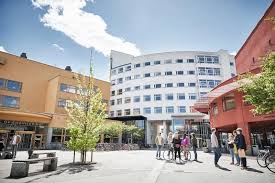This programme will help you understand the process of global markets. It will develop your understanding of economic theory, which allows you to analyse socio-economic problems and understand the dynamics of our fast-paced, interconnected global economy. The combination of economics and statistics gives you the skills and tools you need to solve complex problems by processing and analysing data.
After graduation, you can work with economic issues in areas such as environmental management, health, finance, regional development, and business development. You could also work with these issues within international organisations such as the EU, the UN, or the OECD. Work tasks might include data collection, market analyses, managing financial assets, or working on economic or strategic issues.
The programme’s major is economics (90 credits), but the programme also gives you good knowledge of statistics and econometrics (30 credits). These courses give you the skills and tools needed to process and analyse statistics which are increasingly in demand today. The programme also includes four courses (30 credits) in business administration, addressing various aspects such as leadership and accounting. Together, the combination of economics, statistics and business forms a good and broad foundation for future career choices and gives you a competitive edge when applying for jobs.

